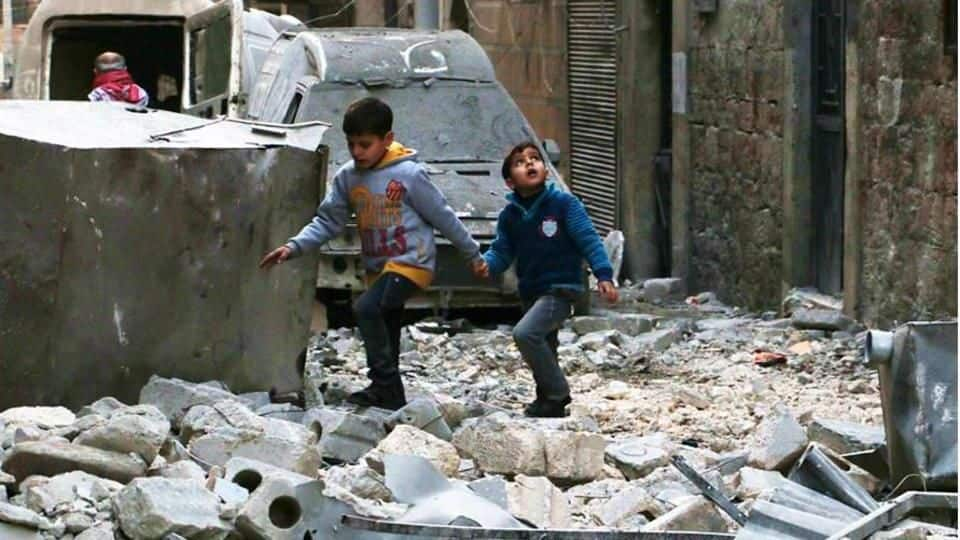
#SyriaWar: UNSC unanimously votes for 30-day ceasefire in war-torn country
What's the story
The United Nations Security Council unanimously voted in favor of a resolution demanding a 30-day ceasefire in war-torn Syria without delay. The move allows the delivery of humanitarian aid to millions across the country and also the medical evacuation of the critically ill and injured. The approval comes after several delays as members struggled to get support from Syria's key ally, Russia. Here's more.
Syrian Civil War
Why is Syria at war?
Following Hafez al-Assad's death in 2000, his son Bashar took over as the President of Syria. Since then, Syrians had complained of high unemployment, the absence of political freedom, corruption, and state repression. In Mar'11, pro-democracy demonstrations in the Deraa city erupted; but the Government crushed the demonstrations. Subsequently, countrywide protests demanding President al-Assad's resignation erupted that led to the Syrian civil war.
Details
Is the ceasefire really going to work?
Though UNSC approved the month-long Syria ceasefire, many raised questions about the move's real impact. The truce doesn't cover some of the "biggest jihadist rebel groups and their associates". Activists say airstrikes in Syria are continuing even after the vote. Government forces have been bombarding Eastern Ghouta rebel enclave for the past week; at least 500 people were killed there since 18 February.
Terror Outfits
Operations against ISIS, al-Qaeda in Syria unaffected
According to the UNSC draft resolution, the Syria ceasefire will not apply to the operations being conducted against terror outfits like the Islamic State, al-Qaeda, and the Nusra Front in the country. The Nusra Front, which is the al-Qaeda's former Syria affiliate, was renamed as Hayat Tahrir al-Sham (HTS) after it joined hands with some other terrorists and organizations.
Russia
But, why was UNSC vote delayed in first place?
UNSC vote on Syria ceasefire was postponed several times after lengthy negotiations to garner support from Russia, which repeatedly argued that an immediate ceasefire was "unrealistic". Russia demanded changes to include those cooperating with terror outfits, after which the resolution specified that operations against individuals/groups/undertakings/entities associated with ISIS, al-Qaeda may continue. Russia wanted changes while the Western powers accused it of "stalling for time."
US, France
US accuses Russia of delaying vote on resolution
Meanwhile, Nikki Haley, the US envoy to UN, demanded immediate implementation of the ceasefire; but she was skeptical about Syria complying with it. Adding Russia "dragged out the negotiations," she stated, "In the three days it took us to adopt this resolution, how many mothers lost their kids to the bombing and the shelling?" France's representative, Francois Delattre, said it was "belated action".
Quote
Russia's UN Representative Vassily Nebenzia's statement
"We know that the humanitarian situation in Syria is dire and requires urgent measures to be taken. It is important to engage not just with Eastern Ghouta. Assistance needs to be delivered to all parts of Syria," stated Russia's Vassily Nebenzia.
Eastern Ghouta
Eastern Ghouta enclave, most hit area in war
The situation in Syria's Eastern Ghouta is so bad that the UN Secretary-General Antonio Guterres called it "hell on Earth". The rebels include several factions, including jihadists. Jaish al-Islam and its rival Faylaq al-Rahman (HTS ally) are the biggest rebel groups there; there have been internal conflicts between them. The Syrian Government has attempted to recapture the enclave due to HTS presence there.